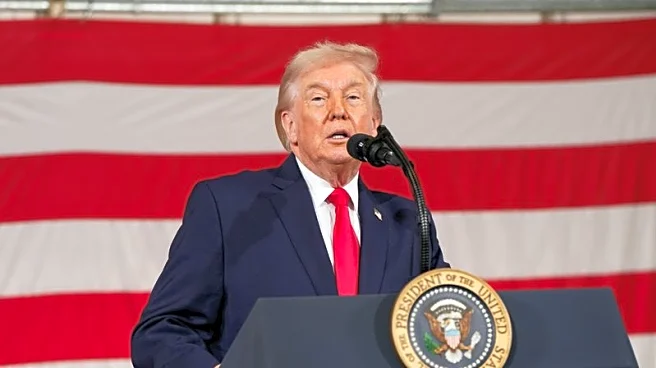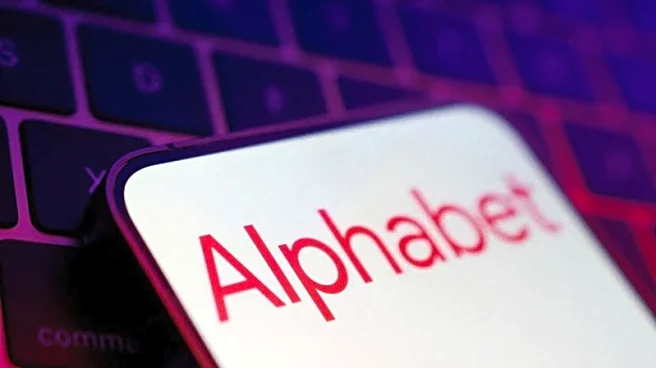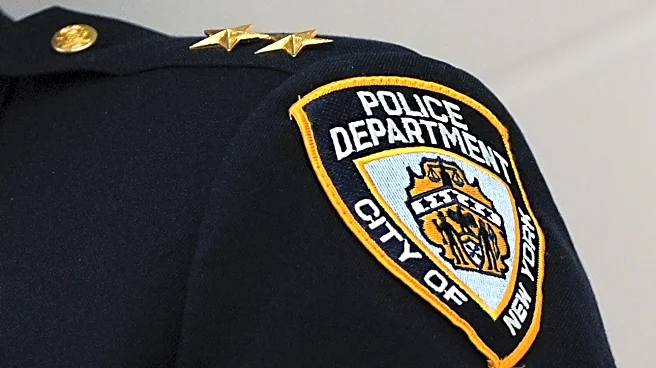What's Happening?
During the 2025 Emmys, a remark by John Oliver became a viral moment, sparking a national conversation about the nature of host bits, charity stunts, and acceptance speech limits. The incident occurred when Oliver, known for his satirical show 'Last Week Tonight,' delivered a line that was bleeped on live TV. The host had tied the length of acceptance speeches to a $100,000 starting donation to charity, with the total donation amounting to $350,000 despite the bleeped audio. This setup encouraged winners to keep their speeches concise, leading to a mix of reactions from audiences. The event highlighted the tension between live broadcast control and the viral nature of social media clips.
Why It's Important?
The incident underscores the evolving dynamics of live television and the impact of social media on public discourse. The Emmys' approach to linking speech length with charity donations reflects a broader trend of integrating entertainment with philanthropy. However, the mixed reactions to Oliver's bleeped line reveal a divide in public opinion on the appropriateness of such stunts. This debate is significant as it may influence how future award shows are structured, potentially affecting the entertainment industry's approach to live events and audience engagement. The incident also raises questions about the balance between entertainment value and the integrity of charitable initiatives.
What's Next?
As a result of this incident, award show producers may reconsider the use of time-based gimmicks and the potential for controversy they bring. Networks might continue to bleep controversial moments, but the rapid spread of uncensored clips on social media ensures that such moments will continue to spark debate. The industry may need to adapt by either adjusting formats to avoid backlash or doubling down on stunts to attract viewers. This could lead to a shift in how live events are produced and consumed, with a focus on balancing entertainment with audience expectations.
Beyond the Headlines
The broader implications of this event touch on the ethical considerations of using charity as a tool for entertainment. It raises questions about the authenticity of philanthropic efforts when tied to commercial entertainment and whether such practices dilute the seriousness of charitable causes. Additionally, the incident highlights the power of social media in shaping public narratives and the challenges traditional media face in maintaining control over live broadcasts.











